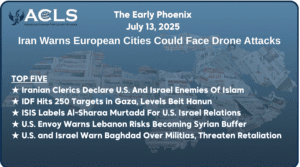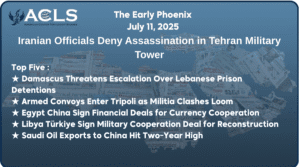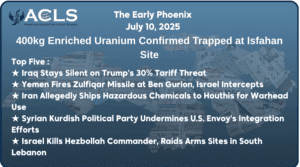- U.S. Navy Recovers Hijacked Tanker, Evades Yemeni Missiles; Eisenhower Arrives in Gulf. The U.S. Navy intervened in the hijacking of the Central Park, a Liberian-flagged tanker managed by Zodiac Maritime, in the Gulf of Aden near Yemen. The vessel, associated with Israel, was seized by armed individuals and subsequently recovered by U.S. forces. Concurrently, two ballistic missiles were fired from Houthi-controlled areas in Yemen, narrowly missing a U.S. naval ship involved in the operation. The presence of the U.S. Navy in the region, including the Eisenhower Carrier Strike Group, is part of ongoing efforts to ensure maritime security in these strategic waters. In related news, Yemen’s Houthi rebels have affirmed their decision to close the Red Sea to Israeli ships despite the recent Gaza ceasefire, signaling a continuation of their assertive stance.
- Biden’s Diplomacy and Hamas: A Barrier to Saudi-Israeli Normalization? President Biden’s suggestion that U.S. diplomacy influenced Hamas’s operations in Israel, aimed at disrupting the Saudi-Israel normalization, intertwines with complex Middle Eastern geopolitics, highlighting America’s significant regional influence. Concurrently, Saudi Arabia proposes a post-ceasefire plan for Gaza, advocating a demilitarized Palestinian state and leading reconstruction, signaling a strategic shift in its stance towards Israel. This shift is underscored by a critical development: “The Saudi Crown Prince, Mohammed bin Salman, has already blocked the phone numbers of Israeli Prime Minister Benjamin Netanyahu and all his aides and envoys,” sources close to the palace reveal. This decisive action emphasizes the Crown Prince’s intention to seek new Israeli partners for normalization after resolving the Palestinian issue, marking a significant recalibration of Saudi-Israeli relations.Israel’s withdrawal from the Mediterranean Regional Forum, as Saudi Arabia emphasizes the need for a lasting Gaza ceasefire and a credible peace plan, reflects the fluid nature of regional alliances. The Gulf markets’ response to fluctuating oil prices amidst these diplomatic shifts illustrates the tight linkage between regional politics and economic stability. Saudi Arabia’s resilience in market trends amidst geopolitical uncertainties showcases its economic robustness. This intricate web of diplomatic overtures, strategic recalibrations, and economic factors continues to shape the dynamic narrative of Middle Eastern geopolitics, particularly in the context of the Saudi-Israel normalization process and Biden’s regional diplomacy. The recent statements by the Egyptian president, proposing a Palestinian state, and Israel’s rejection of this proposal, further complicate the regional dialogue, indicating the ongoing complexity and sensitivity of these evolving relationships.
======================
Follow the latest news from the American Center for Levant Studies via Google News
📢 In case you missed it,
📰 The Early Phoenix Nov 24, 2023
📰 The Early Phoenix Nov 23, 2023
📰 The Region November 22, 2023



